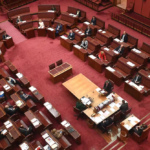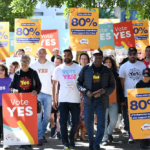Taking the pulse of social media

A broad survey of X (Twitter) posts has suggested that global happiness levels take about two weeks to rebound following a global crisis, or “shock”.
Two serious world events – the initiation of pandemic lockdowns and Russia’s invasion of Ukraine – were studied by surveying discourse on Twitter in the weeks before and after the event. The authors note that the results are a global average, and only represent people who post on Twitter, and were not from one of the surveyed countries (not including Ukraine or Russia).
The study suggests that while people were more immediately upset by lockdown, it only took two weeks to rebound. Russia’s invasion provoked less of an immediate downturn in happiness, but it took longer for the mood to improve.
Associate Professor Stephanie Rossouw of AUT said “We wanted to see whether two different types of macro-level shocks (lockdown – endogenous and the invasion of Ukraine – exogenous to the countries under investigation) affected happiness similarly. Additionally, we wanted to see whether adaptation theory, established using survey data on a micro-level, can be determined when you use Big Data at the macro-level.
Our results showed a strong negative relationship between happiness and both types of macro-level shocks. However, the lockdown shock had a bigger effect on happiness than the invasion of Ukraine.
Regarding adaptation, we were surprised to find that happiness levels adapted faster after the lockdown shock than after the invasion shock. We found that happiness levels were positive two weeks after the endogenous lockdown shock and significantly higher than in the week of the shock. For the invasion of Ukraine, we found it took one week longer for happiness levels to adapt.
We explain the longer period for happiness levels to adapt after the invasion of Ukraine in two ways. First, the countries in our study were negatively impacted because they expressed sadness and sympathy for the Ukrainian people’s plight. Second, as time passed, our countries were negatively impacted because of the economic spillover effects in the form of higher inflation, gas prices and so on. ”
Dr Ben Beaglehole, a Senior Lecturer and psychiatrist at the University of Otago in Christchurch, observed that “The use of Big Data to evaluate social and health outcomes is increasing exponentially. This study evaluates the sentiments of tweets to compare happiness after COVID-19 lockdowns and the Russian invasion of Ukraine with comparison ‘counter-factual’ periods.
Not surprisingly, happiness dropped significantly following the major societal shocks. Greater
negative impacts were seen following the lockdowns than the invasion. However, the duration of
negative impacts was relatively short. Adaptation and normalisation of happiness levels occurred
within two-three weeks.
These findings are reassuring that people are adaptable and respond positively to adversity.
Although major life events increase the risk of common mental illnesses, most people manage
difficult times without the need for additional mental health support.”
Open Forum is a policy discussion website produced by Global Access Partners – Australia’s Institute for Active Policy. We welcome contributions and invite you to submit a blog to the editor and follow us on Twitter, Facebook, Linkedin and Mastadon.














